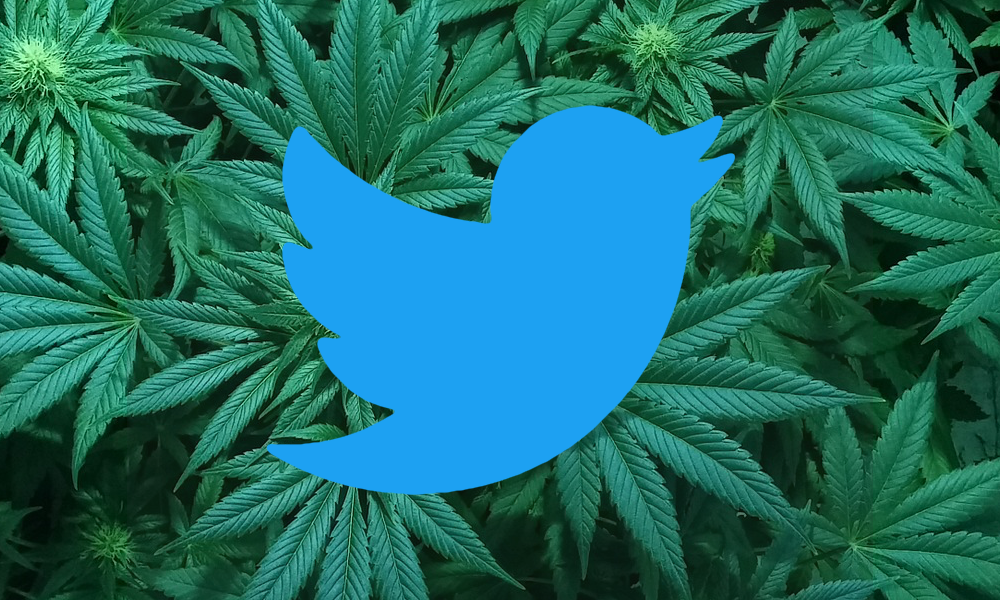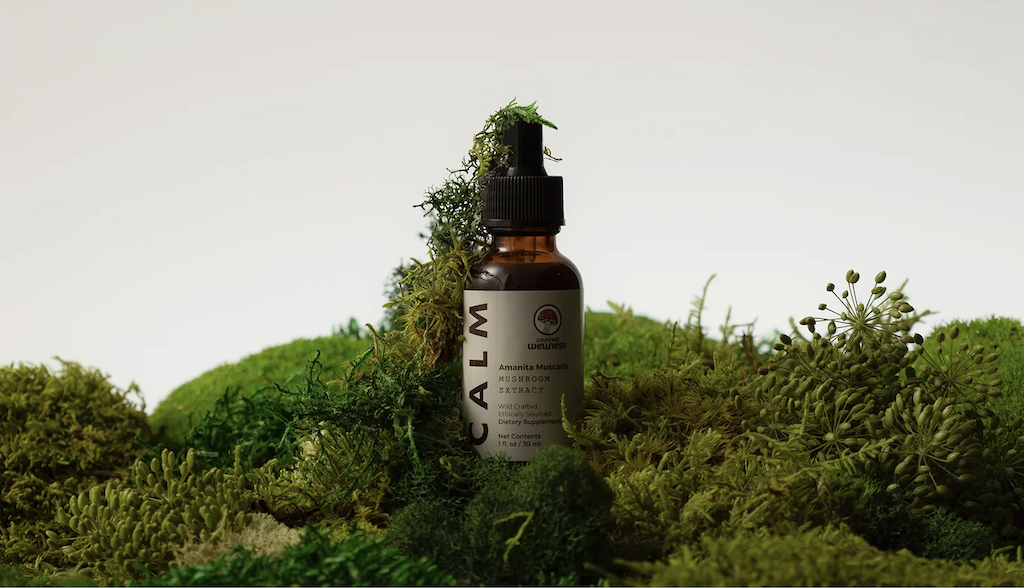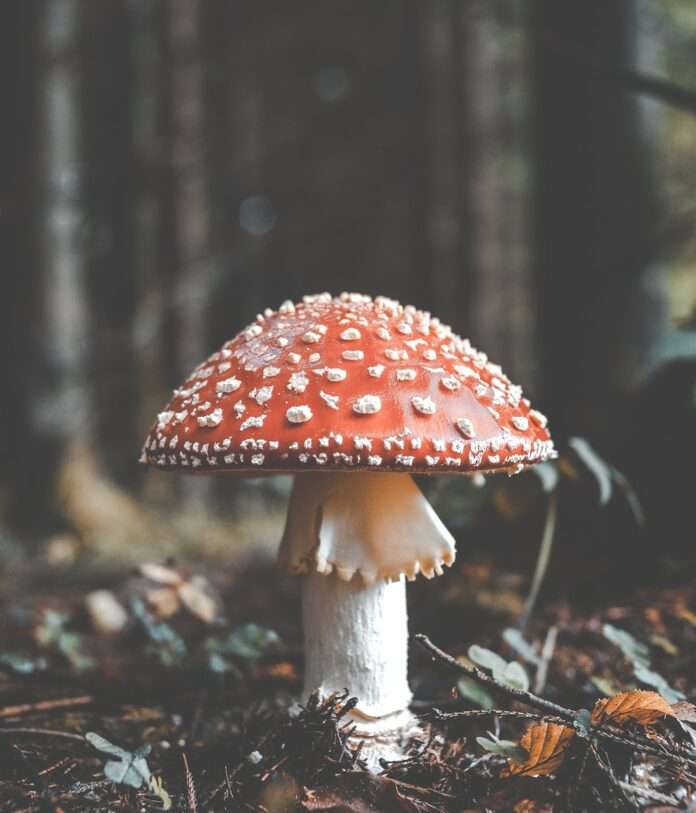Jeff Stevens, CEO of Amanita Muscaria mushroom producer Psyched Wellness, sees a promising future ahead for the category following Twitter’s green light for cannabis ads.
Long gone are the fad diets of late-night infomercials. Today, wellness solutions and supplements have become the darlings of Instagram feeds. Consumers are hungry for information on products such as cannabis and psychedelics as they seek out more non-traditional solutions to conventional treatments.
But Instagram and its parent company Meta have boxed out advertising for many wellness products and services, making adhering to the advertising rules more difficult than ever.
That hasn’t stopped the surge in interest though. Amid record numbers of diagnoses during mental health’s now prominent position in the cultural lexicon, consumers are asking important questions. They are eager to learn more about the growing spectrum of products and which options may be a fit for their individual wellness journey.

Digital spaces are evolving to accommodate new conversations, thus allowing businesses like ours to enter the market at a faster pace. Even with digital access, marketing non-traditional products continues to be a challenge without having the ability to advertise without restriction, or in the same way that traditional companies are able to (without ongoing legislative hurdles and media policies).
In the first quarter of 2023, Twitter earned first-mover status by allowing cannabis advertising. But as other popular social spaces continue to serve billions, when will other wellness choices like Amanita Muscaria have the same important options? To best empower consumers to manage their own health, we must expose them to both information and options. Social media is the most accessible and ubiquitous space for awareness and information, and as cannabis businesses and experts break into the advertising space, so, too, should mushroom products.
Setting the stage
The United States, while slower to adopt new legislation in these spaces, is finally catching up and creating new avenues for businesses in cannabis and psychedelics. The Farm Bill in 2018 was the first domino to drop, but it has taken years for the States to adopt policies that allow companies to promote their businesses on large social platforms.
The 2019 Louie Schwartzberg documentary Fantastic Fungi was one of the first major films promoted widely and it changed the discourse around mushrooms, with an emphasis on psilocybin. The film focused on findings from a study at Johns Hopkins University, narrowing in on how mushrooms could help to treat mental health conditions, primarily depression. Ongoing research and testimony to the benefits of mushrooms continue to multiply exponentially.
Interest in mushrooms of all kinds is everywhere, and the numbers prove it. Pinterest’s 2023 trend forecast included mushrooms as a top trend for the year and it spans decor from throw pillows and lamps to needlework, and more. It’s clear that today’s consumers are fascinated with the way mushrooms have re-integrated into our culture— including, and especially, their potential wellness benefits.
Login to TikTok and you’ll find online communities of foragers, illustrators, and ceramic artists alike all sharing their love for different kinds of mushrooms. Consumers are popularizing mushrooms, demonstrating demand, and creating the opportunity for education that is so critical to proper use and understanding.
As troubled as our understanding of alternative therapies is, banning perceived “vice” advertising isn’t new. In 1971, cigarette ads were banned from television, yet that was only after significant study and mandated through government policy. Social media’s restrictions do not rest solely on the FCC but instead, can fall victim to the hands of thousands of staffers, fielding advertising approvals and account requests daily. A singular piece of content may be flagged for something that is not harmful to the consumer.
For example, in the case of mushrooms and psychedelics, as research expands, algorithms won’t be able to find nuance between research details or unsupported claims and flag all content indiscriminately. This practice is unfair to new products entering the market.
The understanding they have of whether an ad meets guidelines could be based solely on their understanding of the product, creating a vicious cycle. If we can’t raise awareness on social media to help consumers understand supplements and alternative care products, those same consumers may be the ones who deny the ad requests to place information in consumers’ feeds.
Pandemic change
Culture is acutely aware, and still discovering the ways a global pandemic affected our behaviors and thinking, but one trending fact is it’s disrupted our sleep and our stress levels.
With nearly fifty percent of American adults struggling with sleep deprivation, job changes and market disruptions aren’t helping. When most adults lack the proper seven to eight hours of sleep, it flows into other areas of their lives, further disrupting their wellness.

Yet, among these stressors on consumers, new solutions are gaining popularity and consumers are engaging options from a deeper interest in health and wellness. Empowered to seek additional and alternative therapies, consumers are, it seems, doing their homework, even if social media platforms won’t help.
Amanita Muscaria
Our team at Psyched Wellness has invested the last two years exploring the research and development of products derived from Amanita Muscaria, with the launch of our flagship tincture, Calm. It became available in the United States last summer and is becoming widely available across retailers as their distribution efforts expand.
While Amanita Muscaria has been widely popularized across film, television, literature and social media, many may not know its storied uses in health and wellness. For thousands of years, shamanic tribes across Central and South America turned to the mushroom to heal the mind, body, and spirit.

During Greek and Roman times, mushrooms were frequently used to treat serious ailments. Modern science has resurfaced what our ancestors harnessed long ago — the Amanita Muscaria mushroom has wellness benefits that could be helpful for many ailments.
Accessibility
The move to inform and advertise cannabis products on social media platforms is an important first step in empowering more alternative health solutions. As social platforms open their audiences to brands, consumer education will drive their empowerment. Access to the products themselves and more fitting consumer regulations will continue to guide the wellness movement. But, until the social media advertising space opens to increase education, awareness, and options, cannabis-adjacent substances like mushrooms will continue to provide solutions too few can access.
Jeff Stevens is the CEO of Psyched Wellness.
Related on Ethos:


